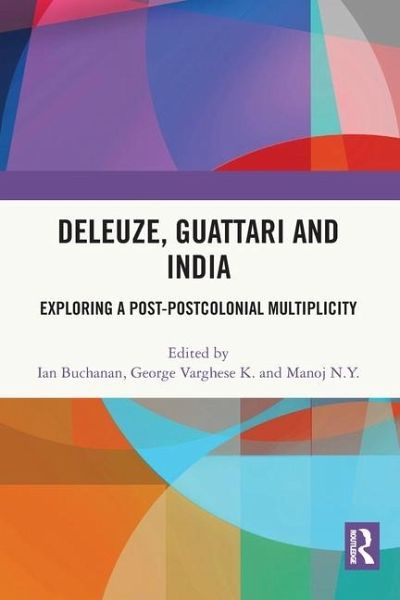
Deleuze, Guattari and India
Exploring a Post-Postcolonial Multiplicity
Herausgegeben: Buchanan, Ian; Varghese K, George; N. Y., Manoj
Versandkostenfrei!
Versandfertig in 6-10 Tagen
45,99 €
inkl. MwSt.
Weitere Ausgaben:

PAYBACK Punkte
23 °P sammeln!
This book presents a pragmatic engagement between the philosophy of Deleuze and Guattari and various facets of Indian society, culture and art. The universal appeal of the philosophy of Deleuze and Guattari finds its due place in India with a set of innovative analyses and radical interpretations that reimagine India as a complex multiplicity.The volume brings together scholars from various disciplines and theoretical orientations to explore a wide range of issues in contemporary India, like dalit and caste studies, nationalism, gender question, art and cinema, and so on under the rubric of De...
This book presents a pragmatic engagement between the philosophy of Deleuze and Guattari and various facets of Indian society, culture and art. The universal appeal of the philosophy of Deleuze and Guattari finds its due place in India with a set of innovative analyses and radical interpretations that reimagine India as a complex multiplicity.
The volume brings together scholars from various disciplines and theoretical orientations to explore a wide range of issues in contemporary India, like dalit and caste studies, nationalism, gender question, art and cinema, and so on under the rubric of Deleuzo-Guattarian philosophy.
This interdisciplinary book will be useful to scholars and researchers of philosophy, anthropology, cultural studies, sociology, postcolonial studies and South Asian studies.
The volume brings together scholars from various disciplines and theoretical orientations to explore a wide range of issues in contemporary India, like dalit and caste studies, nationalism, gender question, art and cinema, and so on under the rubric of Deleuzo-Guattarian philosophy.
This interdisciplinary book will be useful to scholars and researchers of philosophy, anthropology, cultural studies, sociology, postcolonial studies and South Asian studies.














